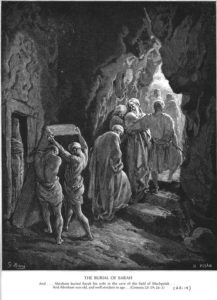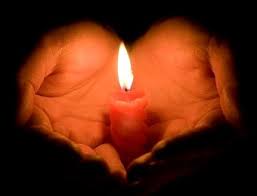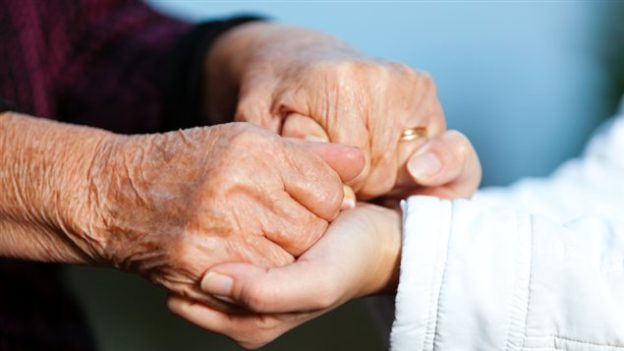Tag: mourning
What is the right way to mourn?
In Judaism, it is pretty straightforward. We have a series of rituals and traditions that serve to guide us. But the answer is more nuanced depending in considerable measure on who you are and the relationship to the deceased.
 Judaism compels us to “do the right thing.” It is one of our tradition’s great insights. Doing what we are supposed to do is affirming the bereaved’s humanity and sense of ethics. Even if the relationship was fraught, Judaism provides the ability to rise above circumstances instead of becoming a victim to circumstances.
Judaism compels us to “do the right thing.” It is one of our tradition’s great insights. Doing what we are supposed to do is affirming the bereaved’s humanity and sense of ethics. Even if the relationship was fraught, Judaism provides the ability to rise above circumstances instead of becoming a victim to circumstances.
In this week’s Torah portion, Chayei Sarah, we read that when Sarah died, Abraham wept (Genesis 23:2). But as is the case with Torah, there is more here than the words of the verse. The Torah has one of the letters of the Hebrew word for wept, livkotah, the kaf, printed physically smaller than the other letters. Our sages saw this as purposeful and concluded that this indicated that Abraham cried only a little. Why would Abraham not weep fully?
Perhaps he was overcome by guilt, bearing responsibility for her death. Midrashim tell of Sarah dying of a broken heart when she learns Abraham took their precious son Isaac and sacrificed to God on Mount Moriah. And to further compound things, Abraham knows in his heart that he would do the same thing again to prove his loyalty to God.
There are many reasons why we are unable to be fully present when we experience loss.
For example, Abraham negotiated for the burial cave and immediately focused on sending his servant to find a wife for Isaac. Most of us have experience with people focusing on funeral planning as a means of diversion from confronting the pain of loss. And many people experience complicated grief or ambivalence over the death of someone ostensibly close.
Our tradition offers us a roadmap of sorts when for the process of death and grief. My teacher Rabbi Dr. Michael Chernick wrote that we have obligations and responsibilities as the surviving loved one. Whether we loved them or even liked them, whether they were good to us or not, for our own sake, we need to do certain things on behalf of those who die. So we learned that despite Abraham’s weeping, or lack thereof, he purchased the cave at Machpelah and buried Sarah there.
As a rabbi, I am often asked how do I bury my loved one correctly? The fact that someone would ask means that, on some level, they already are. Together we can explore ways to help them.
But that is different from dictating what to do or how to feel. We have a framework. The task is to understand how our tradition can provide the honor of the deceased and comfort for the bereaved.
Recently, two adult children asked me to officiate the unveiling for their father. Then they changed their minds, cavalierly saying that as only a couple of prayers need to be spoken, they could do it without the expense of a rabbi in attendance. Besides, he (their father) never would have won father of the year.
As I listened, I knew that they would honor their father, but I also knew they were about to miss out on that crucial second piece of our tradition’s wisdom, finding their comfort. We spent some time talking as I was wearing my chaplain’s kippah. But I didn’t press. I hoped they might process the unveiling and the loss in a constructive way and bring them comfort and healing.
How do you process complicated grief? Abraham demonstrates that the question has been around for a long time. So may we find comfort in our memories of those deceased as we embrace the idea that they may be for us a blessing.
HaMakom Ynachem Etchem
We Remember Them
How do I tell Dad that Mom has died?
How do you tell Dad that Mom has died? This challenging question confronted old friends this past week.
Compassion is such a difficult practice. It is often so difficult to know what is the right thing to do for another person.
A friend’s mother recently passed away after a protracted decline. Sadly her dad is suffering from dementia. My friend and her siblings struggled with whether they should tell him that his wife, their mom, has just passed away. Would he find the loss overwhelming? Would he even comprehend the sad news they would share? He has a right to know and grieve the loss of his wife. But if the news was too much for him to handle, should they wait until there was a better time to inform him?
Further complicating things, he was physically unable to attend the funeral.
Both options, to tell him or not, are based on compassion for dad. But which one is right for him? She reached out to me for counsel.
My first suggestion was to consult dad’s doctor, someone who knows him and is skilled in these medical issues. The doctor can help ascertain how aware is dad of his surroundings. The children, all adults, can also shed some light on dad’s cognitive abilities, but they are emotionally very close to the situation and may not clearly assess how well dad will process the news. It is likely that despite all attempts to know, it is all but impossible to appreciate how much dad truly understands.
We cannot know how people will react to this kind of news even without the complications of these circumstances. Maybe dad will have only a moment of clarity or possibly the news will stay with him. He may work through his grief or become overwhelmed by it. I have learned along my journey that we actually only have moments together. Sometimes these moments last and create enduring memories. Sometimes they fade away. The best we can do is to be fully present in each moment together and hope that it endures. The struggle that this family confronts is a struggle we all face, for each of us will experience loss and then try to reconcile with it in the aftermath. We can try to anticipate how people will respond, but we need to be careful in presuming too much, acting for them instead of allowing them the dignity of exercising his or her own agency.
The Talmud teaches that we treat parents with honor and respect. Might the ways we do that include withholding speech or information that would be hurtful? If dad still has some comprehension, won’t he feel the sadness in those surrounding him and wonder why his wife no longer visits? Further, how will he react if he learns of his wife’s passing long after the fact without the chance to mourn her loss? Arguably we honor our parents when we include them in even the most difficult things, rather than attempting to protect them. Each of us will be called upon to grapple with a similar situation. We must take the utmost care to ensure that our motives are true and that we act in the best interests of our parents and not fulfilling our own needs disguised as compassion. My friend’s struggle was because she loved her father and wanted what was best for him.
Zichronah Livrachah may my friends’ mother be a blessing for the family. May her father be given the opportunity to know that too.
Tazria-A metaphor for helping through bereavement
Something bad happens a strange infirmity of the body called Tzaraat appears. Some say it is leprosy, others claim it to be the heartbreak of psoriasis. But it appears on clothing too. Either way, the priest confirms the affliction and the family is moved out of community. The priest tends to the affected individuals watching to confirm that the disease has passed so they can rejoin the population. Something else might be going on here however.
I was planning a Shiva Minyan teaching the other day and I saw the words of this parshah speaking to us about the grief-stricken family.
Something calamitous happens when a loved one dies. The loss shakes the family to their core and, as our tradition suggests in our rituals surrounding death, the shock and grief is overwhelming and incapacitating. The seven days of Shiva are marked by an abnegation of needs; the mourners sit on low stools, do not attend to basic items such as grooming, clothes are rent.
We in the community are tasked to keep a caring eye on the mourner. We check in with them regularly. We bring the Kehillah, or sacred community, to the mourner so they may engage in prayer even though they are unable to come to the synagogue. We bring them food to eat because they are unable to care for themselves. We offer love and support and succor. We watch over them until it is time for them to start the process of re-joining the community. We welcome them with caring embrace when they come back to the synagogue to say Kaddish. Like the priest helping the ailing, we are responsibility to the mourners through the period of Shiva through the time they can return. Shiva is like the exile of old from the community. It is imposed for reasons over which the person has no control but is rendered impure, or in this interpretation separated because of the trauma of loss.
Tazria shows us that although an ordeal separates the mourner from the community, the community has a responsibility to reach out and continue to support the grief-stricken, acknowledging the difficult place to which they are banished by loss, but caring for them providing protection and then a pathway back to home and life.
Shiva at the Diner
One of the most difficult things we experience is the loss of a loved one. Death takes them away from us. We struggle with our new reality, whether the loss was sudden or even if it was expected, the moment of truth is not as expected.
Death is a complicated emotional process in which we experience loss, then grief and then we try to move forward. Jewish tradition gives us some wonderful coping mechanisms that acknowledge and honor the departed, our relationship to that person and a means of working through the loss.
When we attempt to circumvent or short-circuit the process we lose out. In our fast paced world, we want to “get it over with,” and move on. I frequently hear the need to return to work, which is more a desperate attempt to escape the discomfort of the current situation and not deal with it. Some of us suppress or even ignore our feelings attempting to deny the pain, leaving things unresolved. Our feelings will however come back to haunt us. A perfunctory approach does not serve us well. Our hearts just do not work that way. Judaism has a better way to deal.
Shiva, the traditional Jewish mourning period, is seven days (the word Shiva is Hebrew for seven). It is tempting to shorten this period to a three-day Shiva, or even a one-day observance. I did once hear of a family that decided they would sit Shiva Saturday night at the Italian restaurant/diner. These recastings of Shiva are reflections of everything but the acknowledgement of a profound loss and the grieving process that accompanies such a loss. Sadly, the people who survive are the ones who suffer as a result.
Our Jewish tradition wisely helps guide the survivors through the process. You quite literally sit with your grief, fully acknowledging this place and the loss. Your family, friends and the community gathers to support you in your time of aloneness to share that indeed you are not alone. You experience what we all will experience and we are both connected and strengthened by this knowledge. By being together we say you will get through this with our support and love. The community continues to show its support and love through the institution of the synagogue as a place where you can find not only solace but a caring community that can help you reintegrate as the immediacy of the pain begins to find a place in your heart rather than on your sleeve.
There is joy in life and pain in its loss. How we navigate these is what family, friends and community is all about. The traditional Hebrew phrase we share with someone who experiences a loss might be translated as: “May you find comfort in this place among family and friends.” This is among the values that makes embracing Judaism something sacred and profound.
CCAR Mission to Israel
We are on the final day of our CCAR Israel mission of solidarity and learning. I have not written about most of my experiences and I have refrained from posting anything except for some re-posting of pictures to Facebook that my colleagues have taken, commemorating our time in various places. Although I want to share the extraordinary and incredible experiences, I also want to give them some time to sit inside me as I ruminate and try make sense of them. In some I will be successful and in some I will not.
These days have been filled with visits and talks and discussions and analyses. We packed as much as we could into our days and often into the nights as well. There is much pain here as we struggle to remember who we are while fighting to make a future possible. The actions we take now are the foundation upon which we build that future. Often building is difficult and now in this time of war it is acutely so. The price is paid in blood and also in our souls. If we are the caretakers of the world for our next generation, what is it that we will leave to them? The answer to that question is being forged now.
The singular most important thing I could do was be here to express my solidarity with the people and the State of Israel. So I came. The gratitude was palpable. And for that I am grateful as well. But now it is time to bring it back home and share what I have experienced. I hope to do justice to that sacred task.
There is a time for every thing under heaven. Now is the time to express support, reflect on what is happening and then engage in what is to be done, once the immediacy of this war is concluded. There is much to do tomorrow. But for today, I support my people and pray that all may live in peace.
May we find peace this Shabbat
May we find peace and solace this Shabbat.
We include the name of Mohammed Abu Khdeir to the names of Naftali Frankel, Gilad Shaar and Eyal Yifrach this evening as we recite Kaddish Yatom. We ask of the Divine One:
May the One who makes peace in the high heavens
make peace for us, for all Israel and all who inhabit the earth.
Amen.
עֹשֶׂה שָׁלוֹם בִּמְרוֹמָיו הוּא יַעֲשֶׂה
שָׁלוֹם עָלֵינוּ וְעַל כָּל יִשְׂרָאֵל, וְעַל
כָּל יושבֵי תבל, וְאִמְרוּ אָמֵן
Oseh shalom bimromav, hu yaaseh shalom aleinu,
v’al kol Yisrael, v’al kol yoshvei teiveil,v’imru.
Amen.





